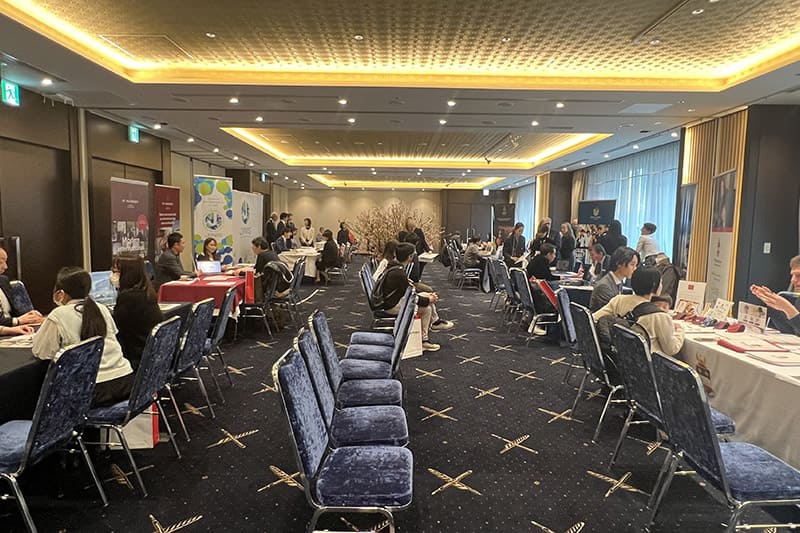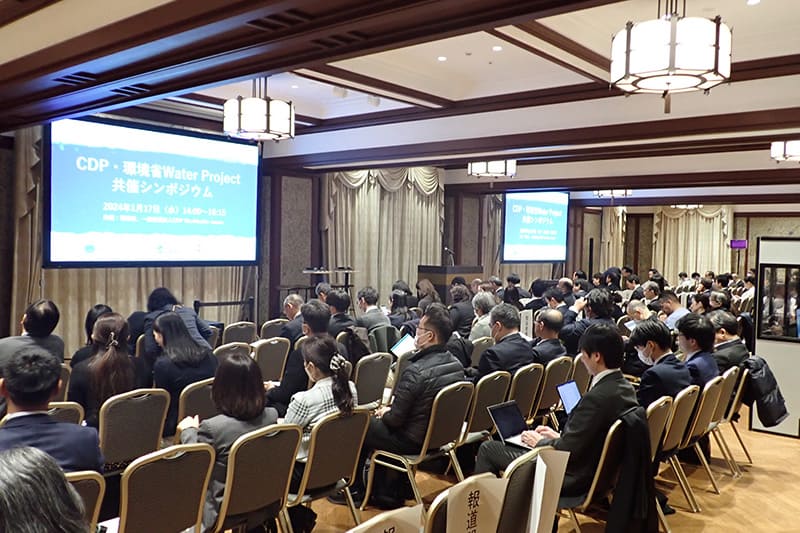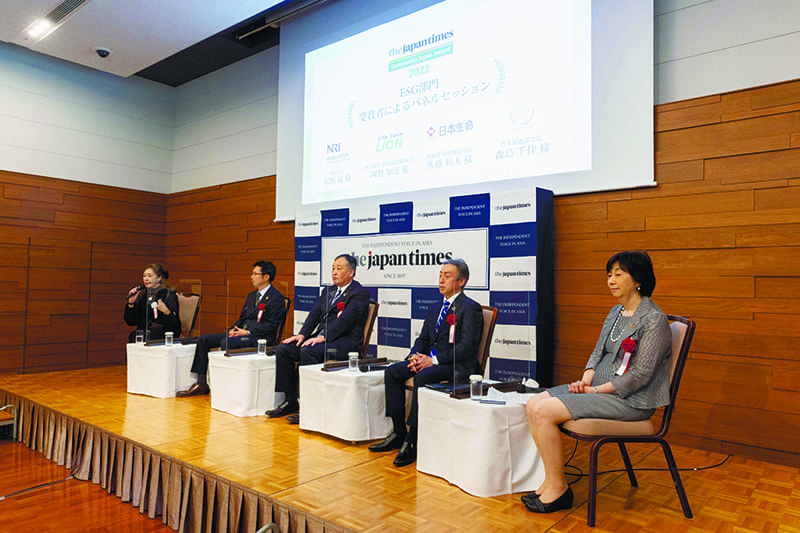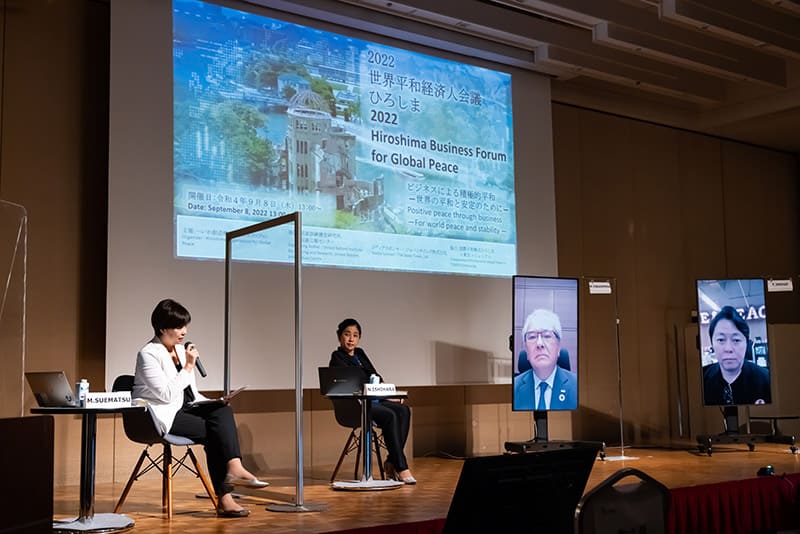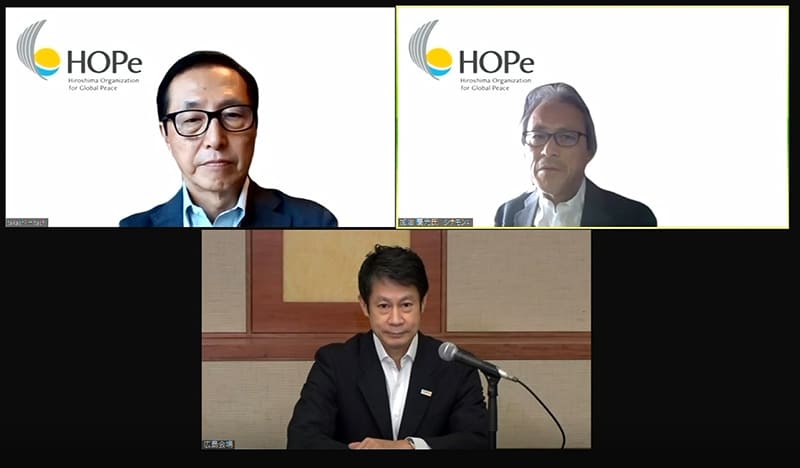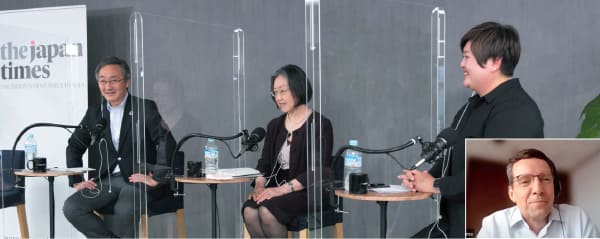January 05, 2024
Experts: Making the best use of a declining population
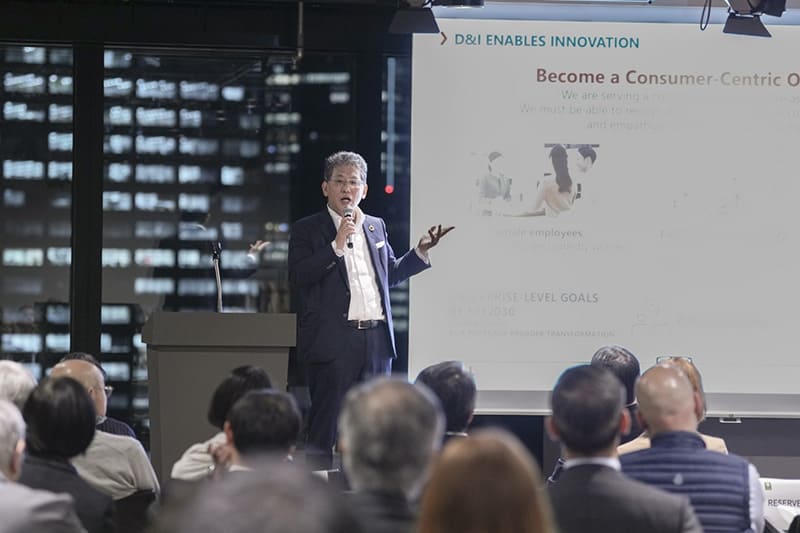
Business experts discussed the management of aging and shrink human resources — a long-standing issue in Japan and an emerging one in many other nations — in Tokyo on Dec. 7 at a seminar, “Exploring Opportunities of Utilizing Underrepresented Human Capital in Japan, a Country with Advanced Challenges,” held by the Tuck School of Business at Dartmouth College in New Hampshire.
In his opening speech, Dean Matthew Slaughter warned that the phenomenon will affect many countries.
“I think the privilege that we had in the environment of general economic growth and general growth in demand because of population growth has given way all over the world to a very different scenario, which is [that] in most sovereign nations, prime working-age labor forces are shrinking, not growing,” he said. “So, the dynamic of what individuals are seeking for human capital development and [what] the organizations that hire them are seeking is quite different.”
A society needs a fertility rate of over 2.1 to sustain itself, but an increasing number of nations’ rates are falling below that. According to the United Nations, the rate for Japan stood at 1.3 in 2021, with China at 1.2, South Korea at 0.8 and the United States at 1.7.
Fixing labor scarcity creatively
Slaughter said in an interview prior to the seminar that the declining birth rate means businesses “have to find creative and new ways to drive innovation, and in an environment that I think is very different, where labor is becoming more scarce.”
He also said that further female participation is a key to Japan’s labor market. “One of the ways that female labor-force participation really matters is not just the number of worker hours, but it’s bringing diverse ideas and perspectives into organizations,” he continued. “The research is very clear that more diverse organizations — along lines of gender, along lines of age, along lines of race and ethnicity — when those people are brought together and they feel safe and trusted, they can actually really contribute to sounder decision-making, more innovation and stronger corporate performance in terms of revenue, growth, profitability.”
Hiroshi Nakamura, dean for Keio University’s Graduate School of Business Administration (Keio Business School), explained the seriousness of Japan’s labor shortage. Citing data from Teikoku Databank, he said that up to 51.4% of companies think there is a shortage of regular employees and 30.7% think they don’t have enough nonpermanent labor, both of which are close to the record highs marked in 2019.
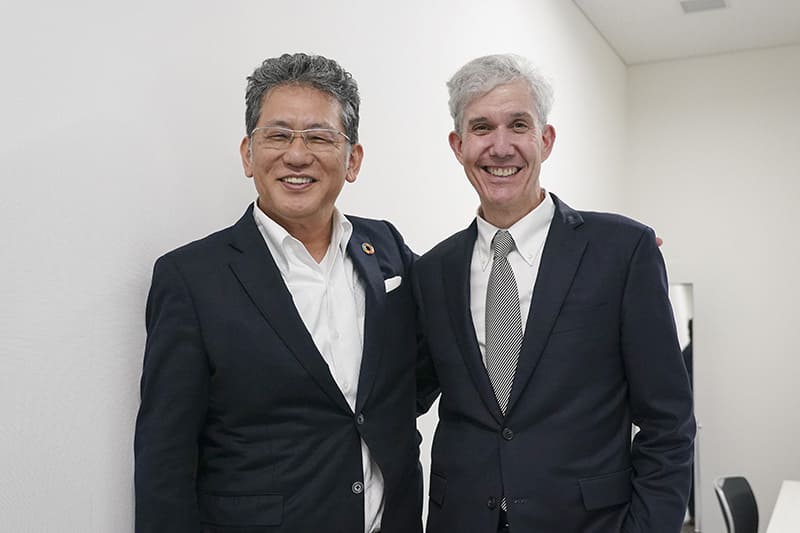
Decline is top threat in Japan
Nakamura maintained that the population decline is the biggest threat to the Japanese economy, as the population of active workers from ages 20 to 64 is expected to decrease by as many as 11 million by 2040. Therefore, he said, companies need to alleviate the tight demand for human resources by utilizing female workers, those with disabilities and foreign residents — those who have been underrepresented in Japanese society — to improve labor productivity. The types of industries that suffer from severe labor shortages are labor-intensive ones such as hotels and ryokan inns, restaurants and information service providers, he added.
Amid the declining population, Nakamura said that enhancing workers’ productivity and engagement are also important. “So, my point is that management education is more important than ever,” the dean said.
“Not only the management skill ability, but also the mindset is very important” amid the challenges facing Japan, Nakamura said. Since there are unmet demands in the Japanese labor market, that means the country has opportunities for future business, he said.
At the end of his speech, Nakamura said Japan could serve as an example for countries with aging demographics at a time when neighbors like China, South Korea, Singapore and Thailand are catching up with Japan’s population shrinkage. “Japan could be a model because we experienced a lot of challenges, problems, and are trying to find solutions ahead of other nations,” he said.
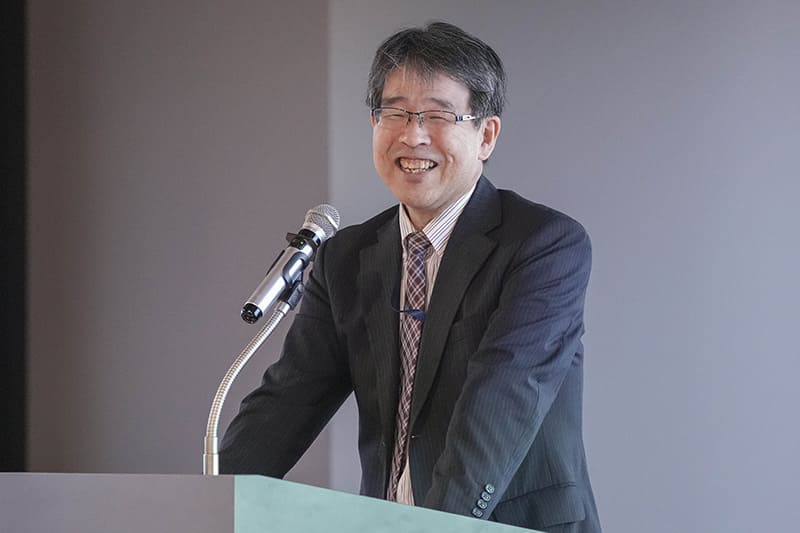

Hiroshi Nakamura, dean for Keio University’s Graduate School of Business Administration | Toru Hanai
Working for diversity: Lixil

Following pitches and a panel discussion by Tuck graduates who have expertise with introducing diversity into Japanese organizations, Kinya Seto, president and CEO of Lixil Corp., explained what his company has done toward achieving diverse human capital.
Lixil, a maker of water and housing products that has approximately 55,000 employees in more than 150 countries, had a tough time consolidating its efforts because of its corporate history. It was founded in 2011 by merging five construction material and housing firms, and acquired companies in the USA and Europe in the following years. “But some of those difficulties actually resulted in great inventions,” Seto said. Building on the original diversity that derived from the history of its founding, and additionally making efforts to hire women and make it easier for them to continue their careers, Lixil has been able to develop some successful products.
For example, one of its unique products is a foam shower device, called Kinuami U, that turns shower water into a creamy foam at the flick of a switch.This product was initially appreciated for its innovative feature, but it was later discovered that it also provides significant assistance to people with disabilities and the elderly, further enhancing its value. Another product is its Well Life kitchen, which was designed from the outset to enable users to cook while sitting on a chair.
After the pandemic broke out, Lixil accelerated its use of remote work, shifting to a hybrid work model, which contributes to making it easier to balance work and private situations for employees who are caring for children or elderly parents or have physical difficulty with commuting. Seto said in a separate interview with The Japan Times that by doing so, especially in Japan, where the burden of family care weighs more heavily on women, the company can attract competent female workers and thus enhance its corporate value.
“It may be difficult for each of us alone to change the world, or one company to change all of society. But at least one company can change its own ways,” he said, adding that he hopes Lixil’s changes have a positive impact on other firms.
Aiming to highlight issues related to a sustainable society, The Japan Times gave its support to this event by becoming a media sponsor.

